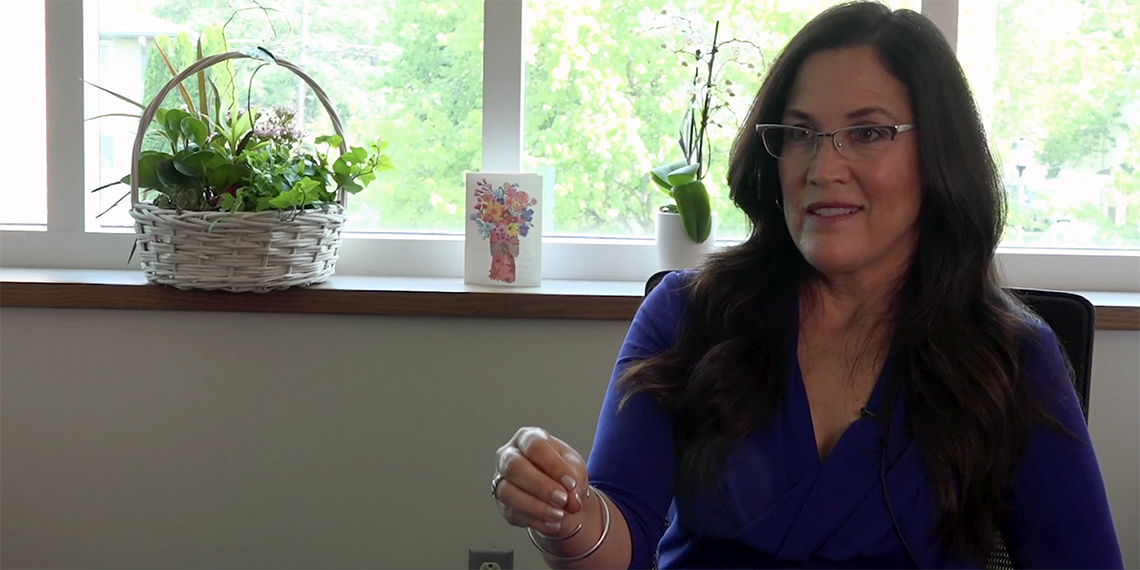Up Close: Education Dean Yolanda Gallardo
Education with a Mission

SPOKANE, Wash. — Yolanda Gallardo, Ph.D., who this fall became dean of the School of Education, brings fresh perspective, enthusiasm and a wealth of scholarly experience in teaching and leading teachers. She believes the School of Education plays a central role in Gonzaga’s mission to educate people for “lives of leadership and service for the common good.”
“Gonzaga’s all about serving others, it’s about loving others, it’s about paying attention to others’ stories and humanizing the work. If the School of Education is not the cornerstone of that mission, I don’t know what is,” she said. “That is really important.”
“Job one,” she said, will be supporting the school’s faculty and staff.
“Everything that I do with my faculty and staff will touch our students and they, in turn, will touch the lives of children in the classroom, people who are served by our counselors and by those in all of the numerous programs that we have with people going into different areas of the world and serving other human beings,” she said.
Gallardo came to Gonzaga from Berea College in Berea, Kentucky, where she served as associate professor and the Robert Charles Billings Endowed Chair in Education. Before that, she was dean of education (2010-2014) and associate dean of undergraduate education (2007-2010) at Georgetown College, Georgetown, Kentucky.
Much of Gallardo’s work has focused on the intersection of education and culture — she served as associate director of the ESL Dual Language program at Kansas State University (2001-2005) — and she’s excited about the school’s new bachelor of education degree in community, culture and language. The program will provide students with a sophisticated and practical understanding of the ways in which cultures, languages, and literacies support and challenge communities.
“This program fits beautifully with Gonzaga’s mission,” she said. “It’s taking a look at the humans we serve, where they come from, the languages they speak, the cultures they come from. That will be a focus not only in this particular program but blending that emphasis throughout all of our programs.”
Gonzaga’s mission to educate and be attentive to the needs of the whole person matches her own leadership and teaching style, Gallardo said, adding that includes serving “in a spirit of humility, grace and integrity.”
“I am a firm believer in culturally responsive instruction, which considers the context of every human that comes into a space, whether it’s the classroom or my office or the building. I believe that the mission of Gonzaga supports the idea that we should be paying attention to and honoring the story that every person brings with them,” she said, adding that her role involves both “responsive and reciprocal leadership where I’m also willing to be led by those I serve.”
Another first-year priority, Gallardo said, will be an assessment of practices in the school’s programs to better understand and enhance their effectiveness for students and their community impact. She is optimistic for education graduates and aims to ensure programs remain dynamic and meet needs in the workforce.
“I see the future as really bright for our graduates. It’s our job in the School of Education to make sure that we’re paying attention to the trends in teacher education, sport management administration where we’ll be placing people in the workforce in professional sports, in counseling, school psychology, kinesiology, physical education and all of our programs,” she said. “As the culture shifts in education, as laws change, those shifts can provide some challenges but whenever you have a challenge you have an opportunity. We’ll be paying attention not only to what it is we’d like to do but what the community needs.”
Serving the community will be a priority, Gallardo said.
“It’s very important for us to remember that we don’t exist in isolation. I think that the biggest challenge for all of us is really to make sure that we’re paying attention to community needs,” she said. “Whenever this community is in crisis — whether it’s in economic crisis or there are human rights issues, poverty, immigration — for any of those kinds of issues, the school has to pay attention, be aware and always hold compassion, while remaining cutting-edge in our field.”
Research has helped develop and clarify best practices in education for the multiple and varied student populations — from special education to English language learners — and GU education faculty are researchers and scholars who also see themselves as teacher-learners in the dynamic interplay of top-quality education, she said.
“Our faculty are scholars in the field who are collaborating with other scholars in the state, across the country, and internationally. I think that one of the best things about being an educator and being in the School of Education is not just knowing that you have the fun job of being a teacher, it’s knowing that you’re also a student,” Gallardo said.
- Academics
- Diversity & Inclusion
- Faith & Mission
- School of Education
- Academic Vice President
- University Advancement
- Doctor of Educational Leadership
- Kinesiology & Sport Management
- Master of Arts in School Counseling
- Master of Arts in Sport and Athletic Administration (MASAA)
- Master of Arts in Teaching English as a Second Language (MA|TESL)
- Master of Counselling (Canada)
- Master of Education (School Administration) (Alberta)
- Master of Education in Leadership and Administration (British Columbia)
- Master of Education in Special Education
- Master of Initial Teaching Elementary or Secondary
- Master of Initial Teaching in Special Education
- Sports Physical Education
- Teacher Education
- Special Education
- Sport Management
- News Center




